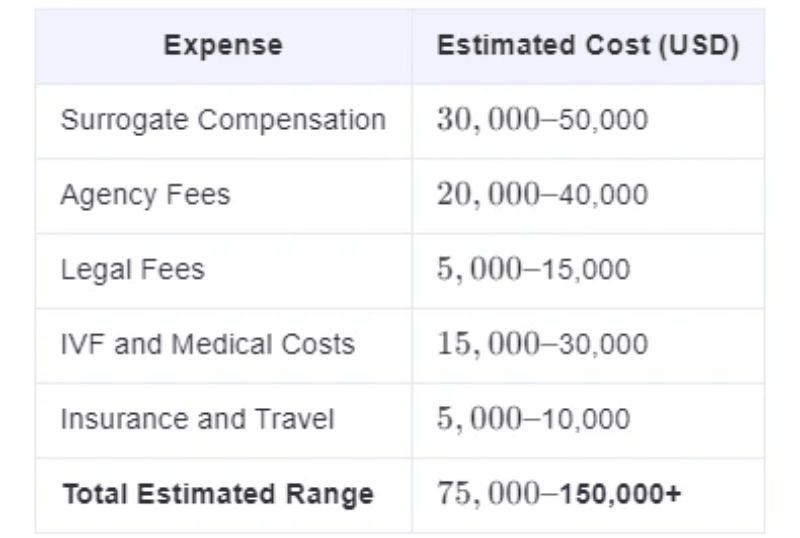Introduction
In recent years, paid surrogacy has become a widely discussed topic in the realm of assisted reproductive technologies. For individuals and couples who are unable to conceive or carry a pregnancy to term, surrogacy offers a path to parenthood. However, when compensation is involved, the process becomes more complex—both legally and ethically. This article provides a comprehensive overview of paid surrogacy, including how it works, where it’s legal, what it costs, and the ethical considerations involved. Whether you're an intended parent, a potential surrogate, or simply researching the topic, this guide will help you understand the current landscape of paid surrogacy in 2025.
What Is Paid Surrogacy?
Paid surrogacy, also known as commercial surrogacy, refers to a surrogacy arrangement in which the surrogate mother receives financial compensation beyond medical and pregnancy-related expenses. This is in contrast to altruistic surrogacy, where the surrogate receives no payment and only has her costs covered.
There are two main types of surrogacy:
- Traditional Surrogacy – The surrogate uses her own egg and is therefore genetically related to the child. She is artificially inseminated with the intended father’s or donor’s sperm.
- Gestational Surrogacy – More commonly practiced today, this involves in vitro fertilization (IVF), where an embryo created from the intended parents’ or donors’ eggs and sperm is implanted into the surrogate’s uterus. The surrogate has no genetic connection to the child.

Where Is Paid Surrogacy Legal?
The legality of paid surrogacy varies significantly across the globe. Some countries and states allow it with regulation, while others ban it entirely or only permit altruistic surrogacy. Here's a breakdown of the current legal landscape:
✅ Countries Where Paid Surrogacy Is Legal:
- United States – Legal in many states, especially California, Nevada, and Illinois. Each state has its own laws.
- Ukraine – Allows commercial surrogacy for heterosexual married couples.
- Georgia – Permits paid surrogacy with minimal restrictions.
- Russia – Commercial surrogacy is legal and widely available.
❌ Countries Where Paid Surrogacy Is Illegal:
- United Kingdom – Only altruistic surrogacy is allowed; commercial surrogacy is a criminal offense.
- France – Completely bans all forms of surrogacy.
- Germany – Prohibits both commercial and altruistic surrogacy.
- Canada – Altruistic surrogacy is legal, but commercial surrogacy is illegal.

How Does Paid Surrogacy Work?
The process of paid surrogacy typically involves the following steps:
- Matching with a Surrogate – Intended parents can find a surrogate through an agency, online platform, or personal connection.
- Legal Contract – A binding legal agreement is drawn up, outlining compensation, responsibilities, medical decisions, and parental rights.
- Medical Screening – Both the intended parents and surrogate undergo medical and psychological evaluations.
- IVF and Embryo Transfer – If using gestational surrogacy, IVF is performed to create the embryo, which is then transferred to the surrogate’s uterus.
- Pregnancy and Birth – The surrogate carries the baby to term and gives birth. Intended parents are often present for the birth.
- Parental Rights Transfer – After birth, legal steps are taken to establish the intended parents as the legal guardians.

What Are the Costs of Paid Surrogacy?
The cost of paid surrogacy varies widely depending on location, agency fees, legal requirements, and whether intended parents are using donor eggs or sperm. Here’s a general breakdown:

Some intended parents choose to fundraise or take out surrogacy loans to cover these costs.
Ethical Considerations in Paid Surrogacy
Paid surrogacy raises a number of ethical questions, especially around the commercialization of reproduction and the potential for exploitation:
- Exploitation of Surrogates – Critics argue that surrogates from lower-income backgrounds may be pressured into surrogacy for financial reasons, which can compromise informed consent.
- Commodification of Children – Some believe that paying for surrogacy turns children into commodities.
- Surrogate Autonomy – Ethical surrogacy should ensure that the surrogate has full autonomy over her body and decisions during pregnancy.
- Legal Parental Rights – Disputes may arise over who has legal custody, especially if the surrogate decides not to relinquish the child.
To mitigate these concerns, it's essential to work with ethical agencies, ensure fair compensation, and provide psychological and legal support to surrogates throughout the process.
Success Rates and Medical Considerations
The success of paid surrogacy largely depends on the quality of the embryo and the health of the surrogate. With modern IVF techniques and proper medical screening, most surrogacy journeys result in successful pregnancies.
It’s important to work with a reputable fertility clinic that has high success rates and experienced reproductive endocrinologists.
Real Stories and Testimonials
Many intended parents and surrogates have shared their experiences online, offering valuable insight into the emotional and practical aspects of paid surrogacy. These stories often highlight the life-changing impact of surrogacy, the importance of communication, and the emotional journey for all parties involved.

Conclusion
Paid surrogacy offers a viable path to parenthood for many individuals and couples. However, it’s a complex process that involves legal, ethical, and financial considerations. Whether you're an intended parent or a potential surrogate, it’s crucial to understand the laws in your area, choose ethical and reputable agencies, and ensure that all parties are fully informed and supported throughout the journey.
As surrogacy continues to evolve globally, it's important to advocate for fair treatment of surrogates, transparency in the process, and legal clarity for all involved. With the right support and guidance, paid surrogacy can be a deeply rewarding experience for everyone involved.
Call to Action
Are you considering paid surrogacy and looking for reliable resources or agencies? Contact us today to learn more about how we can help you navigate the surrogacy journey, from finding a surrogate to understanding legal and financial requirements.
